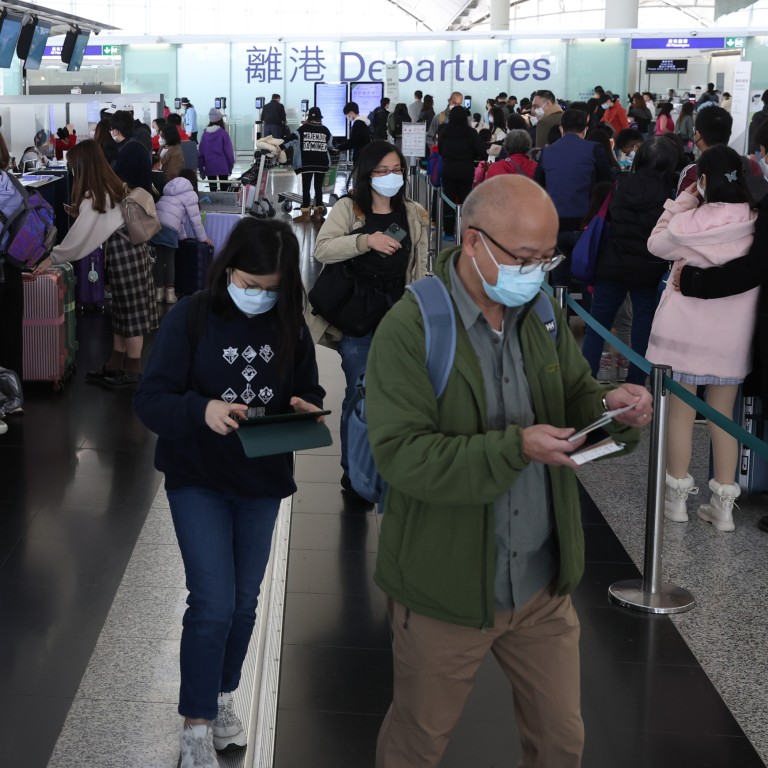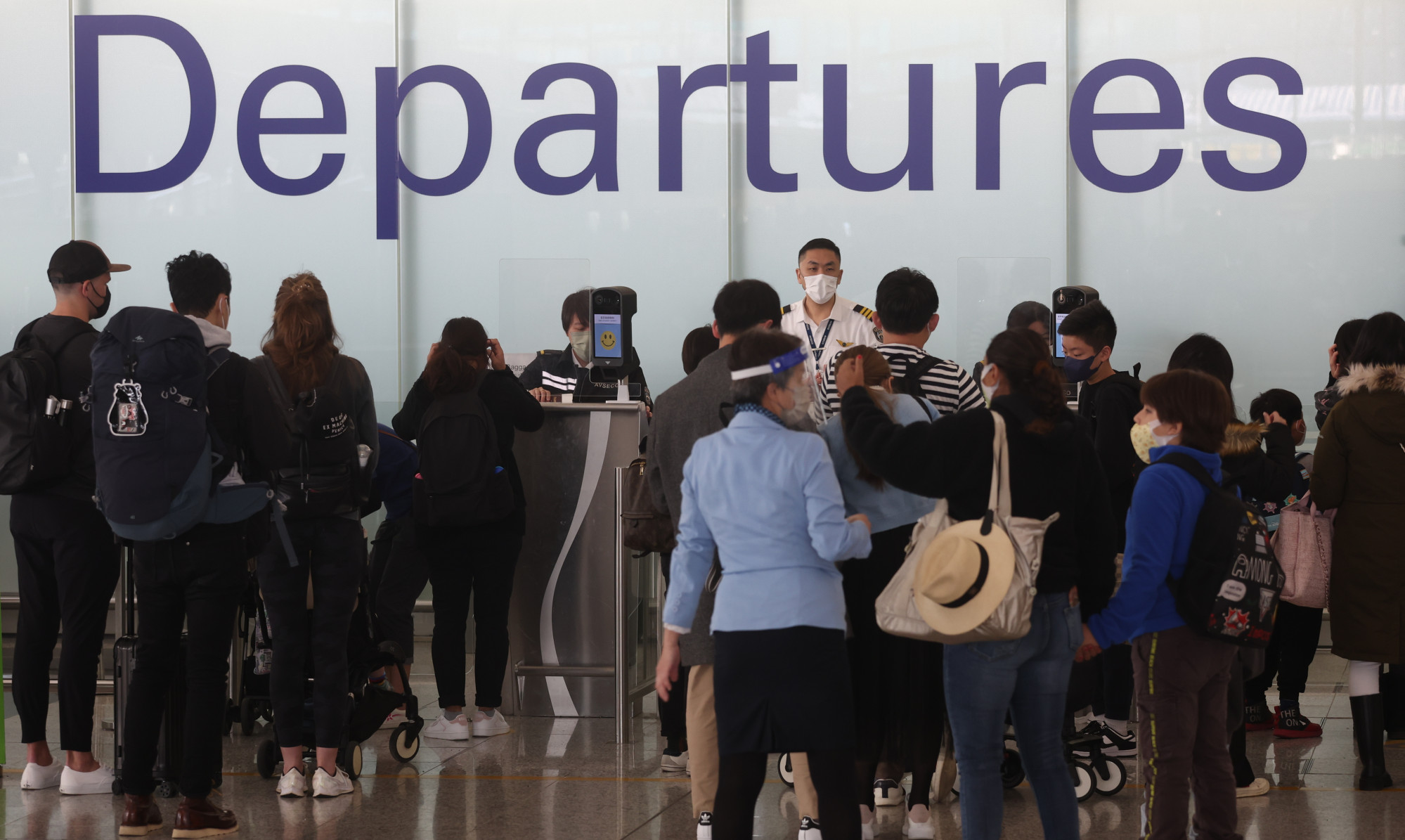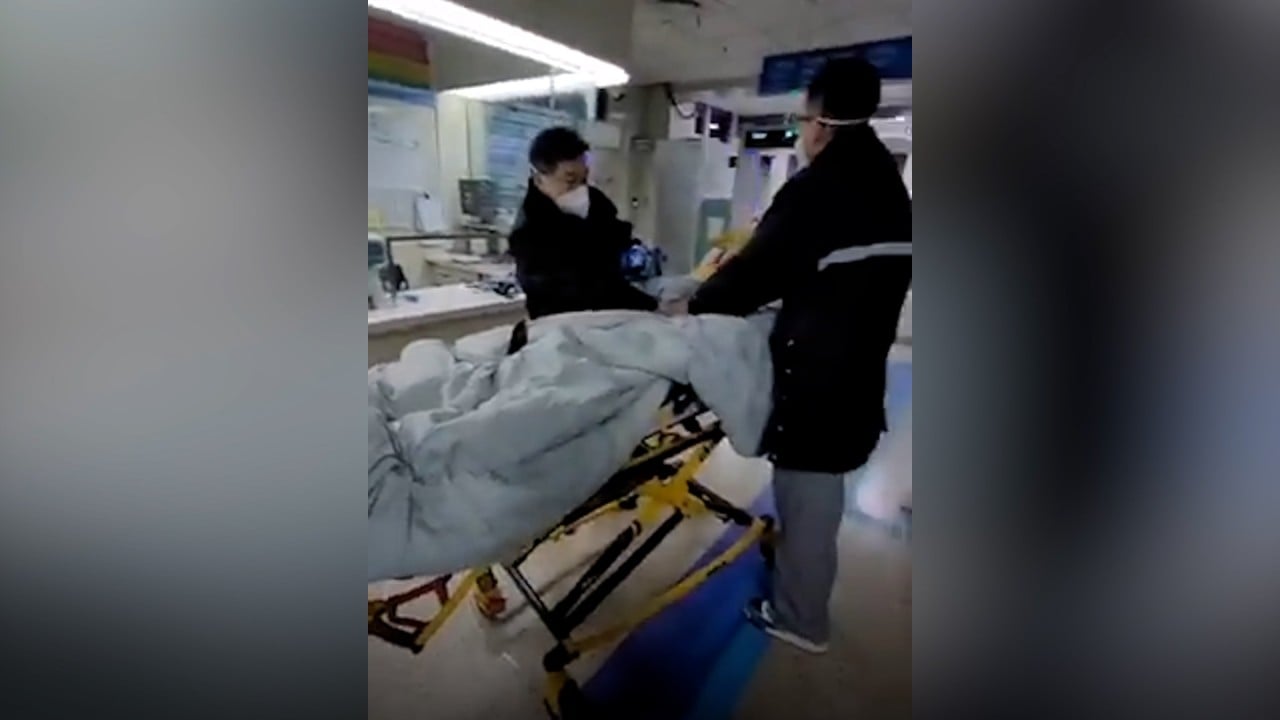
Japan tells Cathay Pacific, Hong Kong Airlines and Hong Kong Express to halt flights to Sapporo, Fukuoka, Naha
- Japan will only allow direct flights from China, Hong Kong and Macau to depart from and land at four airports – Narita, Haneda, Kansai and Chubu
- It will also require all visitors from China to undergo Covid-19 tests upon arrival from Friday, amid reports the virus is ‘rapidly spreading’ there
The Japanese government on Tuesday asked three Hong Kong airlines to halt their flights to Sapporo, Fukuoka and Naha, as it seeks to limit arrivals amid an explosion of Covid-19 cases in China.
Prime Minister Fumio Kishida said Japan would require all travellers from the mainland to take Covid-19 tests on arrival from Friday.
It would also only allow direct flights from mainland China, Hong Kong and Macau to land at four airports – Narita, Haneda, Kansai and Chubu – and had requested Japanese airlines not to increase such flights.
Hong Kong’s flagship airline Cathay Pacific, Hong Kong Airlines and Hong Kong Express Airways had been asked to suspend their flights to the three destinations from Friday.
China is on the cusp of reopening. But is the world ready?
Tickets to most Japanese destinations in January, however, appeared to be “sold out” on Cathay’s website after the announcements, while its subsidiary budget airline Hong Kong Express had also listed all ticket sales for Okinawa as “sold out” starting from December 30.
A spokesman from the airline on Tuesday said its flights to Japan would continue as scheduled, including those to Fukuoka and Sapporo, adding it was working to clarify the situation with the Japanese authorities.
A check by the Post found outbound flights to other Japanese airports, including Okinawa, Sapporo and Fukuoka in the coming week, remained unaffected, as of 8pm on Tuesday.

The steps came a day after the Chinese government said it would reopen its borders on January 8 and abandon quarantine measures.
Kishida said Japan had decided to impose Covid-19 testing because “there is information that infection is spreading rapidly” in China.
He said travellers from the mainland, as well as those who had been there within the past seven days, would be required to test on arrival in Japan.
Those who tested positive must quarantine for seven days in principle, while those who were asymptomatic must quarantine for five.
China’s lack of information and transparency about infections made it difficult to assess and figure out safety measures, with huge discrepancies between information from central and local authorities, and between the government and private organisations, Kishida said.
“There are growing worries in Japan. We have decided to take a temporary special measure to respond to the situation,” he said.
Kishida added the government would take a flexible approach while considering the infection situation in China. “We will be mindful of not stopping the international flow of people,” he said.
Japan only fully reopened to tourists in October after two-and-a-half years of Covid-19 restrictions that kept out almost all foreign travellers.
In 2019, travellers from mainland China made up 30 per cent of inbound tourists visiting Japan.
Why China’s selective Covid data adds up to public distrust
China reacted sharply to Kishida’s announcement on Tuesday, saying the planned measure could stall the movement of people between the two countries.
“China believes that epidemic prevention measures should be scientific and moderate and should not affect normal personnel exchanges,” Foreign Ministry spokesman Wang Wenbin told a news conference in Beijing.
So far, there been no other reports of countries in the region restricting flights from China, but India has started randomly testing 2 per cent of international passengers arriving at its airports for Covid, citing the case surge on the mainland.
Meanwhile, at least one regional carrier is preparing to return to China.
Singapore Airlines will begin passenger service to Beijing on Friday on a fortnightly basis. Flights from Singapore to the Chinese capital stopped in 2020 as the pandemic wreaked havoc on air travel.
Asia has been on alert over China’s unprecedented surge in infections after the government abruptly lifted many of its harsh Covid restrictions following nationwide protests.
Dale Fisher, a professor at Singapore’s NUS Yong Loo Lin School of Medicine, said the number of hospitalisations for severe illnesses arising from Covid-19 in China should be monitored.
It could be concerning for healthcare systems if there were “excessive numbers of cases of severe disease”.
“If a new variant emerged that was not suppressed by our immunity then we would see more severe cases that could overwhelm our health system,” said Fisher, who is also chair of the WHO’s Global Outbreak Alert and Response Network.
According to Paul Tambyah, president of the Asia Pacific Society of Clinical Microbiology and Infection, potential mutations coming out of China were likely to result in an “even milder but more transmissible” virus.
“This is in line with every virus in history,” he said. One example he cited was how the deadly Spanish flu, which took more than 50 million lives after it first broke out in 1918, eventually evolved into a dominant strain of seasonal influenza.
“No human virus has ever evolved to greater virulence so the danger is unlikely to come from [Covid-19],” he said.
Reporting by Agence France-Presse, Associated Press, Kyodo



